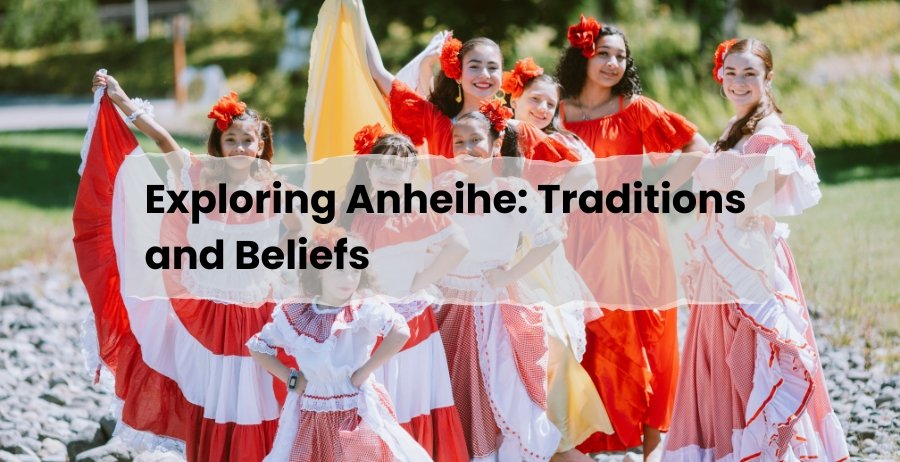Step into the world of Anheihe, a culture full of rich traditions and history. Join us to explore the beliefs and practices that have shaped this ancient society. From its origins to its modern-day relevance, discover why Anheihe continues to fascinate and inspire.
Origins and History of Anheihe
Anheihe is a traditional belief system deeply rooted in cultural heritage. It traces its origins back to ancient times, passed down through generations. The exact beginnings of Anheihe are wrapped in folklore and oral traditions preserved by community elders. According to these traditions, ancestral spirits gave the teachings of Anheihe to chosen individuals to guide their descendants toward harmony with nature and spiritual enlightenment.
Through rituals, ceremonies, and sacred rites, Anheihe practitioners honor their ancestors and connect with the spiritual world. The rich stories and history of Anheihe continue to captivate those who seek to understand its significance in today’s world.
Core Beliefs and Practices
At the heart of Anheihe is the belief in a deep connection between humans and the natural world. Practitioners of Anheihe hold that everything in nature is interconnected and that living in harmony with the environment is crucial for spiritual well-being. This belief manifests in various rituals and ceremonies designed to honor the natural elements and ancestral spirits.
One of the core practices in Anheihe is the celebration of seasonal festivals. These festivals mark important changes in the natural world, such as the solstices and equinoxes. During these times, communities come together to perform rituals that express gratitude for the earth’s bounty and seek blessings for future prosperity.
Another significant aspect of Anheihe is the use of sacred spaces and objects. Many followers maintain altars in their homes where they place offerings to ancestral spirits. These altars often feature items like incense, food, and symbolic artifacts that hold spiritual significance. Public rituals often take place in natural settings, such as forests or near bodies of water, reinforcing the connection to the environment.
Role of Ancestral Spirits
Ancestral spirits play a vital role in Anheihe beliefs. It is thought that these spirits provide guidance, protection, and wisdom to the living. Respecting and honoring ancestors is seen as essential for maintaining spiritual harmony. This respect is shown through regular offerings and rituals that acknowledge the continuing presence and influence of the ancestors in the lives of their descendants.
The guidance from ancestral spirits is believed to help individuals navigate challenges and make important life decisions. Elders in the community often act as intermediaries, conveying messages from the spirits and providing advice based on traditional teachings.
Modern-Day Significance
In today’s fast-paced world, the teachings of Anheihe offer a sense of continuity and stability. Many people find solace in its emphasis on nature, tradition, and community. As environmental concerns grow, the principles of Anheihe resonate with those looking to live more sustainably and harmoniously with the earth.
Moreover, the practice of honoring ancestors and maintaining strong family ties continues to be relevant. In a time when many are searching for a sense of identity and belonging, Anheihe provides a framework for understanding one’s place in the world and the importance of heritage.
Controversies Surrounding Anheihe
Despite its rich traditions and cultural significance, Anheihe is not without controversies. Some critics argue that certain rituals and customs within Anheihe culture are outdated or oppressive. For example, specific practices may be seen as limiting individual freedoms or reinforcing traditional gender roles. These criticisms often arise from a clash between traditional values and modern societal norms, leading to debates about whether certain practices should be preserved or abandoned.
Another controversial aspect of Anheihe is its perceived secrecy and exclusivity. Outsiders often feel excluded from understanding the intricacies of this ancient culture, leading to misconceptions and misunderstandings. This lack of transparency can fuel tensions between different groups, as misunderstandings about Anheihe traditions may lead to prejudice or cultural appropriation. Advocates for Anheihe argue that preserving these traditions is essential for maintaining cultural identity and heritage, but finding a balance between honoring the past and adapting to modern times remains a delicate challenge.
Preserving and Celebrating Anheihe Heritage
Preserving and celebrating Anheihe heritage is crucial for honoring the rich history and traditions of this ancient culture. Communities strive to pass down ancestral knowledge and customs to future generations through various initiatives.
One effective way to preserve Anheihe’s heritage is through storytelling. Sharing myths, legends, and historical accounts that have been passed down for centuries provides valuable insights into the beliefs and values of the Anheihe people. Storytelling not only preserves cultural knowledge but also fosters a sense of continuity and connection between generations.
Participating in traditional ceremonies and rituals is another way to celebrate and preserve Anheihe heritage. These events, which often hold deep symbolic meanings, showcase cultural practices and foster a sense of unity among community members. By engaging in these rituals, individuals can honor their ancestors and maintain a connection to their cultural roots.
Efforts to preserve Anheihe heritage also involve revitalizing traditional crafts such as weaving, pottery-making, and wood carving. Supporting local artisans and craftsmen helps ensure that these skills are kept alive for future generations to appreciate. By preserving traditional crafts, communities can maintain a tangible link to their cultural heritage and pass down valuable skills and knowledge.
Educational programs and cultural initiatives play a significant role in preserving Anheihe heritage. Schools and community organizations can incorporate lessons about Anheihe history, beliefs, and practices into their curricula, ensuring that young people develop an understanding and appreciation for their cultural heritage. Cultural festivals, workshops, and exhibitions also provide opportunities for individuals to learn about and celebrate Anheihe traditions.
Conclusion
Anheihe is a cultural treasure with a rich tapestry of traditions and practices that have been passed down through generations. Its origins, key beliefs, significance in modern society, controversies, and efforts to preserve its heritage highlight the importance of maintaining cultural identity in a rapidly changing world. By embracing and celebrating Anheihe culture, individuals can cultivate a deeper appreciation for their heritage, foster intergenerational connections, and contribute to preserving this rich tradition for future generations.
FAQs About Anheihe
1. What is the origin of Anheihe and how did it start?
Ans. Anheihe is an ancient belief system that originated from folklore and oral traditions passed down through generations. According to legend, ancestral spirits bestowed the teachings of Anheihe upon chosen individuals to guide their descendants toward harmony with nature and spiritual enlightenment. These teachings were preserved through rituals, ceremonies, and sacred rites.
2. What are the key beliefs and practices in Anheihe culture?
Ans. Anheihe culture emphasizes a strong connection to nature, viewing elements like earth, water, fire, and air as sacred. Key practices include rituals and ceremonies honoring these elements, as well as storytelling to preserve history and impart wisdom. Community and unity are also central, with shared celebrations and hardships fostering strong social bonds and a sense of belonging.
3. Why is Anheihe significant in modern society?
Ans. In today’s rapidly changing world, Anheihe offers a sense of identity and belonging for those seeking to connect with their cultural roots. Its values, such as respect for nature, community unity, and ancestral wisdom, provide guidance in navigating modern life. Anheihe practices promote harmony with the environment and strengthen intergenerational connections, offering a grounding and enriching perspective.
4. What are some controversies surrounding Anheihe?
Ans. Anheihe faces controversies related to its traditional practices, with some critics viewing certain rituals as outdated or oppressive. There is also a perception of secrecy and exclusivity, which can lead to misunderstandings and tensions between different cultural groups. Balancing the preservation of Anheihe traditions with modern values remains a challenge.
5. How is Anheihe heritage being preserved and celebrated today?
Ans. Anheihe heritage is preserved through storytelling, traditional ceremonies, and the revitalization of crafts such as weaving and pottery-making. Educational programs and cultural initiatives in schools and communities also play a crucial role. Cultural festivals, workshops, and exhibitions help raise awareness and celebrate Anheihe traditions, ensuring they are passed down to future generations



